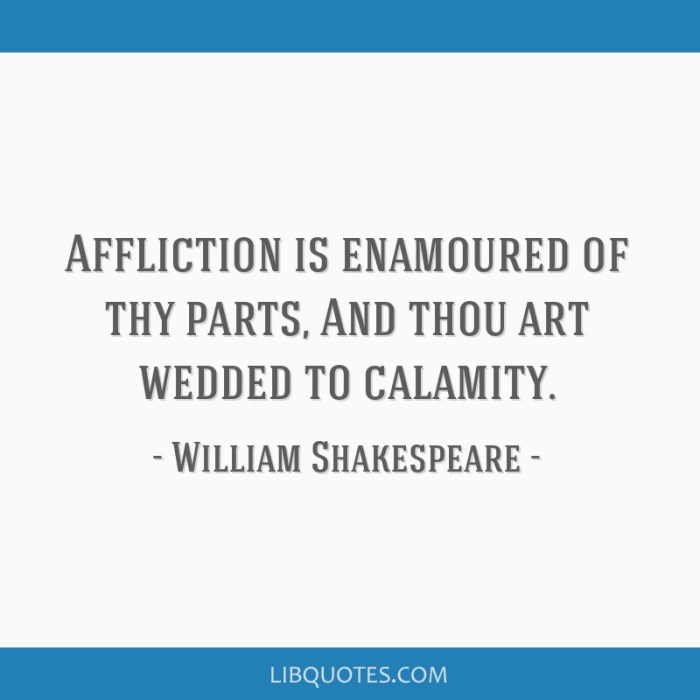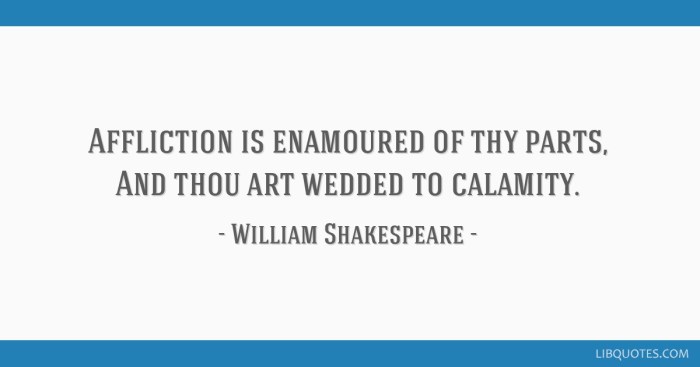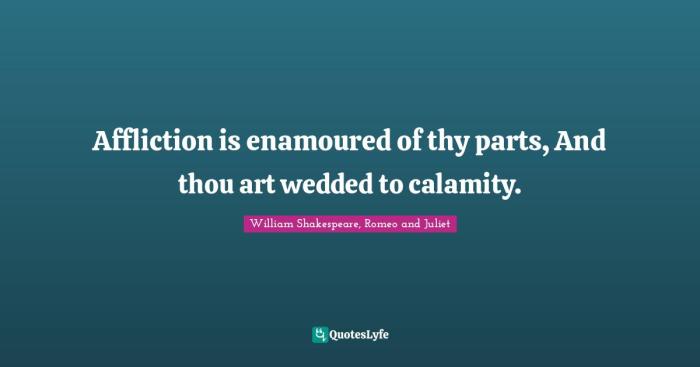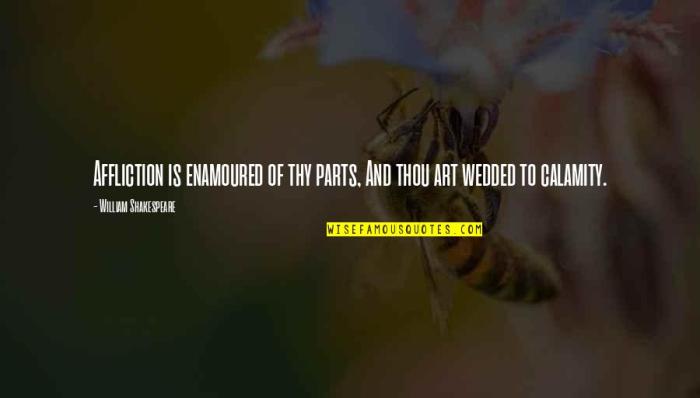As ‘Affliction is Enamored of Thy Parts’ takes center stage, this opening passage beckons readers into a world crafted with linguistic precision and thematic depth, ensuring a reading experience that is both absorbing and distinctly original.
This phrase, a captivating exploration of affliction, desire, and the human condition, invites us on a journey through the realms of language, literature, and cultural context.
Lexical Analysis

The phrase “affliction is enamored of thy parts” presents a complex lexical structure. “Affliction” refers to a state of distress or suffering, while “enamored” implies a strong infatuation or love. The phrase’s grammatical structure follows the subject-verb-object pattern, with “affliction” as the subject, “is” as the verb, and “thy parts” as the object.
The phrase employs the literary device of personification, attributing human qualities to a non-human entity (“affliction”). This device creates a vivid and emotionally charged image of affliction as an active force with desires and affections.
Thematic Exploration

The phrase “affliction is enamored of thy parts” suggests several potential themes:
- The allure of suffering:Affliction may be seen as alluring or attractive, perhaps due to its potential for growth, redemption, or self-discovery.
- The nature of desire:The phrase implies that affliction desires or seeks something, suggesting the universal human longing for connection, meaning, or relief.
- The human condition:The phrase reflects on the complex and often paradoxical nature of human existence, where suffering and joy can coexist.
In literature, the theme of affliction’s allure is explored in works such as Dostoyevsky’s Crime and Punishment, where the protagonist Raskolnikov embraces suffering as a means of self-punishment and redemption.
Cultural Context

The phrase “affliction is enamored of thy parts” may have originated in the Victorian era, a period characterized by a fascination with the macabre and the supernatural.
The phrase’s imagery of affliction as a seductive force reflects the Victorian preoccupation with death and mortality, as well as the belief in the transformative power of suffering.
Figurative Interpretation

| Figurative Interpretation | Explanation | Example |
|---|---|---|
| Personification | Affliction is portrayed as a human-like entity with emotions and desires. | “Affliction is enamored of thy parts.” |
| Metaphor | Affliction is compared to a lover who is attracted to a person’s physical attributes. | “Affliction kisses thy lips.” |
| Allegory | The phrase represents a larger struggle between good and evil, with affliction representing the forces of darkness. | “Affliction torments the soul.” |
| Symbol | Affliction is a symbol of the human condition, representing the inevitable suffering that accompanies life. | “Affliction is a part of life.” |
Frequently Asked Questions: Affliction Is Enamored Of Thy Parts
What is the significance of the phrase ‘affliction is enamored of thy parts’?
The phrase suggests that affliction has a peculiar affinity for certain aspects of human existence, often targeting those most vulnerable or susceptible to its influence.
How does the phrase reflect the nature of human suffering?
It highlights the paradoxical nature of affliction, which can simultaneously inflict pain and provide a catalyst for growth and resilience.
What are some literary devices employed in the phrase?
The phrase utilizes personification, portraying affliction as an entity with emotions and desires, and employs alliteration for emphasis and rhythmic effect.